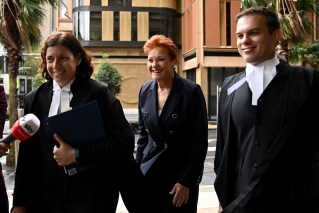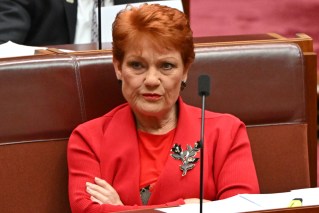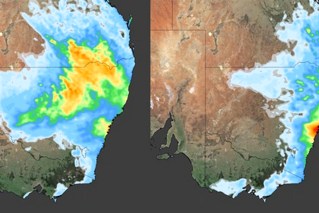Weak emissions targets spell disaster for Great Barrier Reef

The Great Barrier Reef has avoided an ‘endangered’ listing from UNESCO, but experts say current climate targets from the Queensland and Australian governments aren’t high enough to ensure its survival.
Richard Leck, World Wildlife Federation Australia’s head of oceans, told The New Daily the draft report recognises progress from the governments, but “also makes it very clear that both governments need to step up”.
“The key commitment the governments need to step up is ambition on reducing climate emissions,” he said.
“If not this summer, then inevitably in summers to come we will see extreme heat stress on the Great Barrier Reef.”
UNESCO’s state of conservation report, released on Tuesday, refrained from putting the reef on the endangered list, but warned it could experience coral bleaching in the near future and asked for a progress report in February 2024.
Mr Leck said global temperatures need to be limited to 1.5 degrees Celsius above pre-industrial levels to give the reef the best chance of survival.
“The Australian government’s current climate policy is more consistent with a 2 degrees global temperature rise,” Mr Leck said.
“The Queensland government’s target is really unambitious. It hasn’t been updated in a very long time and it is just a 30 per cent reduction by 2030.”
Unambitious targets
Queensland Environment Minister Leanne Linard said the state government’s actions on climate change are working and the draft UNESCO decision notes the action taken to address major threats to the reef.
“Queensland has almost achieved its 2030 interim emissions reduction target, 30 per cent reduction based on 2005 levels, nine years ahead of time,” she said in a statement to The New Daily.
“The Palaszczuk government will continue to work with the Albanese government and other stakeholders to ensure the Great Barrier Reef is protected so it can be enjoyed by future generations.”
Federally legislated climate targets aim to cut emissions by 43 per cent by 2030, but according to the Department of Climate Change, Energy, the Environment and Water’s emissions projections from December 2022, it is projecting Australia will reduce emissions by 32 per cent by 2030.
When asked if federal emissions targets were high enough to protect the reef, the department pointed to interviews on Tuesday morning from Minister for Environment Tanya Plibersek and said further questions on emissions should be directed to Minister for Energy Chris Bowen.
“We are doing everything we possibly can to protect the reef because no one cares more about the reef than Australians,” Ms Plibersek told ABC Mornings.
“We actually don’t need UNESCO to tell us that climate change is a threat to every reef around the world.”
Even with additional measures, the department only estimated a 40 per cent emissions reduction by 2030.
Urgent need for action
Dr Lissa Schindler, Great Barrier Reef campaign manager at the Australian Marine Conservation Society, told TND that while the government touts the draft report as a great result, the reef is still under serious threat from climate change.
“The current target Australia is sitting on is around 2 degrees of warming, and the problem with 2 degrees is once we get over the 1.5 degrees threshold, scientists are telling us the corals are going to be under a lot of pressure,” she said.
“Scientists are saying they still need to up their climate target to 75 per cent by 2030 and aim for net zero by 2035.”
The reef is considerably affected by climate factors, its resilience to recover from the impacts of climate change is significantly compromised and it lacks “clear climate targets and implementation measures which are urgent,” according to the draft decision.
Dr Schindler said at 1.5 degrees of warming, which is almost certain to be surpassed, there will be severe damage to the Great Barrier Reef.
“We’ve seen that when temperatures have exceeded 1.5 degrees Celsius there has been a lot of bleaching and mortality in the coral reefs,” she said.
Bleaching fears
“Governments need to do more and should do more because this is the decade where we need to see action before it’s too late.”
The reef has experienced several bleaching events, primarily because of rising ocean temperatures caused by climate change.

The Great Barrier Reef is at risk of further bleaching. Photo: Getty
Mr Leck said there is a huge concern in the scientific community regarding the potential for a strong El Nino event this summer and the effects it will have.
“There is an enormous need for the Queensland government to significantly increase its ambition on emissions reduction, and also for the Australian government to show national and global leadership to have a climate policy that’s actually consistent with protecting the reef,” he said.
“It is really worrying that we are sitting in the middle of winter and the water temperature is a couple of degrees higher than [it] should be. It’s not a promising sign for this summer.”








